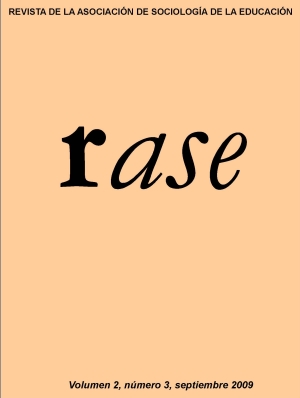El éxito escolar no depende de la proporción de inmigrantes sino de la aplicación de las actuaciones de éxito
DOI:
https://doi.org/10.7203/RASE.2.3.8688Keywords:
immigration, equality of differences, intercultural cohabitation, streaming Abstract
Abstract
Several political measures as well as the scientific dominant literature in Spain start from the racist affirmation that a high proportion of immigrant student is the reason for school failure. In this sense, the student distribution among schools or the organization of the classroom adapting it to the different levels and needs of student, are some proposals that try to solve the educational inequalities. Nevertheless, the scientific international community already demonstrated decades ago that these solutions generate the opposite effect: school failure, more inequality and racism. However, it is true that data indicate a major educational failure in those centres with immigrant students. What we interrogate ourselves in this article is about the educational actions that are implemented instead of attributing bad results to ethnic reasons. The analysis of the experience of the Learning Community "Mare de Déu de Montserrat" (Terrassa- Barcelona), where more than a half of students are immigrant, teaches us that, when some success measures are introduced (we will detain in Interactive Groups and in Family Training) the educational level increases without reducing the number of immigrants.
 Downloads
Downloads
Downloads
Published
How to Cite
-
Abstract899
-
PDF (Español)343
Issue
Section
License
![]()
This work is licensed under a Creative Commons Reconocimiento-NoComercial-CompartirIgual 4.0 Internacional.




